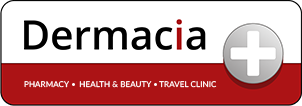Malaria Advice
- Home
- Malaria Advice
Dermacia's Guide to Avoiding Malaria
It is essential for travellers visiting tropical, sub-tropical or developing countries to check whether malaria is present in any of the regions they will be visiting and to take adequate precautions against contracting the disease. Malaria is a dangerous and potentially fatal disease resulting from an infection of the blood.
Transmitted via bites from the female Anopheles mosquito, a parasite called Plasmodium develops in the liver until it is released into the bloodstream where the parasites multiply in the red blood cells causing illness. Initial symptoms may include a fever, headaches, muscle pain or tenderness, coughing and diarrhoea. So if you are travelling to a region that is affected by Malaria, whether on holiday or as a business traveller, Dermacia recommends that you plan on visiting our North London walk in travel clinic to get expert advice about whether you should take a course of anti-malarials.
Minimising the Risk of Malaria
As yet there is no vaccination against malaria but there are several ways in which travellers can protect themselves against the disease. Taking adequate precautions not only minimises the risk of contracting malaria but also other mosquito-transmitted diseases such as yellow fever, dengue fever and Japanese encephalitis.
Dermacia Travel Clinic recommends that travellers to known malaria hotspots take following preventative measures to avoid being bitten:
- Minimise skin exposure, particularly after sunset when mosquitoes are at their most active, by wearing long-sleeved clothes and trousers.
- Apply an effective DEET-based insect repellent to both skin and to clothes.
- Spray rooms with insecticide, use a plug-in ‘vapourising’ mosquito repelling device or, if appropriate burn mosquito coils to kill any mosquitoes that may have entered.
- If possible, choose rooms that benefit from air-conditioning or a ceiling fan as mosquitoes are averse to lower night-time temperatures
- If windows are unprotected by fine mesh it is advisable to sleep beneath a lightweight mosquito net that has been impregnated with an appropriate insecticide
- Take Antimalarial Tablets that you can get from the pharmacist at Dermacia's Islington travel clinic. Although there is no malaria vaccine, by taking a course of antimalarial tablets you can reduce your risk of infection by up to 90%, and are an essential precaution when travelling to countries in which malaria is present. There are various commonly-administered types of antimalarial tablets: Doxycycline, Atovaquone plus Proguanil, Mefloquine (a.k.a. Larium) and Chloroquine plus Proguanil.
Each type of antimalarial tablet is effective in different circumstances and it is recommended that you seek advice from Dermacia's North London Travel Clinic’s expert travel advisors to determine which antimalarial medication is the most appropriate for you. We offer the convenience of a walk-in travel clinic which means that you can obtain malaria advice for your trip abroad at any time without the need for a prior appointment. Similarly, antimalarial tablets can be obtained from our pharmacy at any time during our opening hours also without appointment.
Further Information
You can find further useful information about malaria and its prevention at : http://www.nhs.uk/Conditions/Malaria/Pages/Introduction.aspx and http://www.hpa.org.uk/Topics/InfectiousDiseases/InfectionsAZ/Malaria/ and at http://www.fitfortravel.nhs.uk/advice.aspx#malaria
Either pop in to your local travel clinic in Islington or call Dermacia on 020 7226 2780, you can even book an appointment online for free travel advice.
My Wish List

